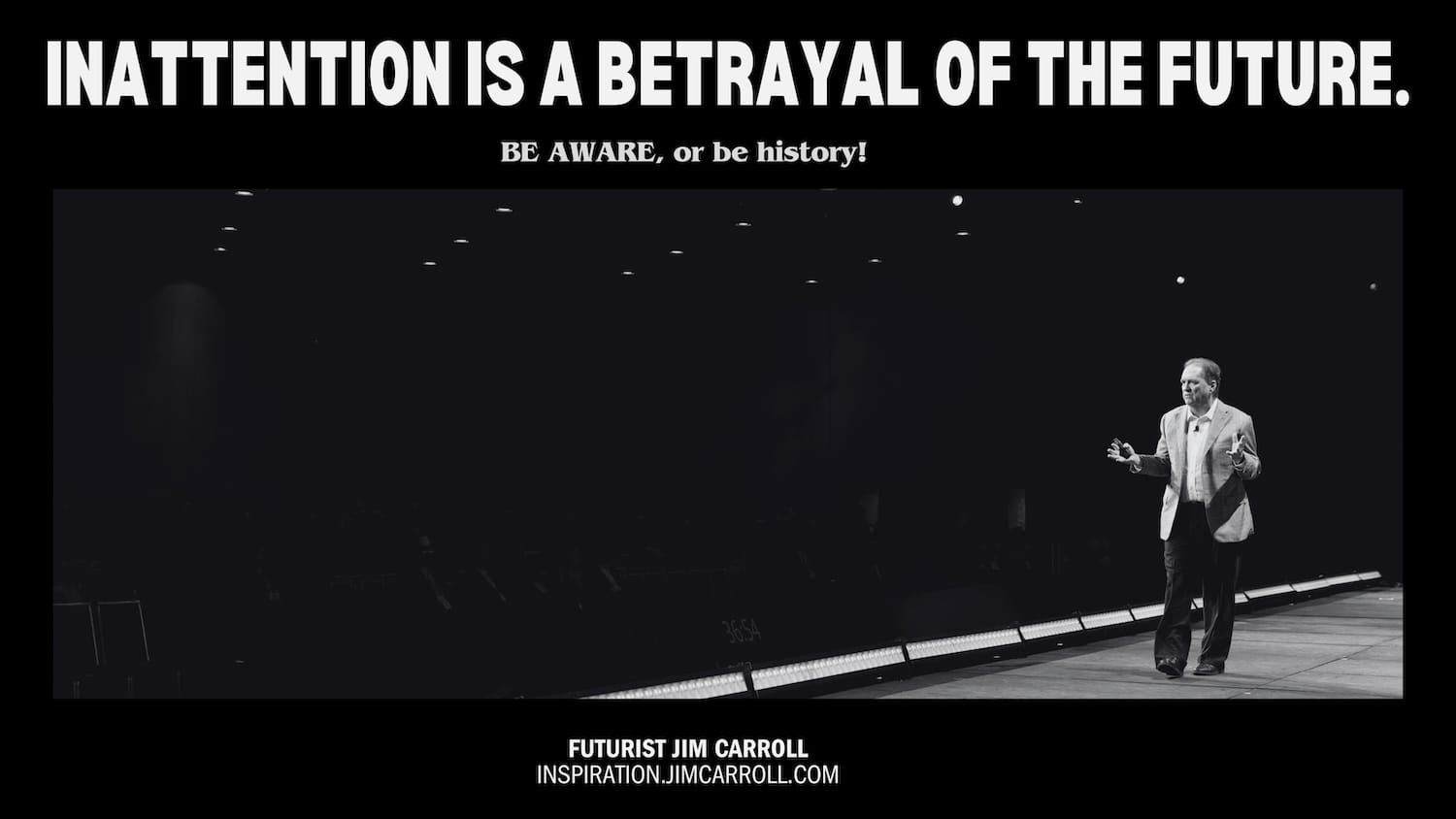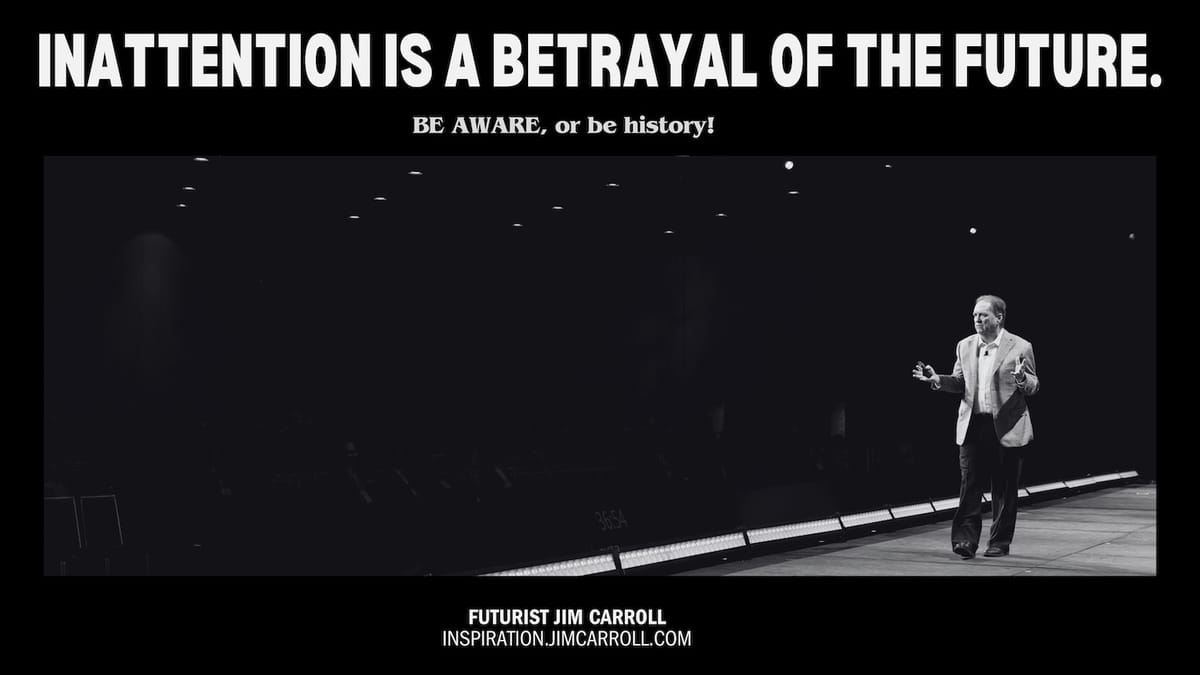"Inattention is a betrayal of the future. Be aware, or be history!" - Futurist Jim Carroll

I've always tried to avoid writing about politics in this series; on the other hand, I can't help but watch things and learn from them.
With that in mind, I'm always reminded by what I see that, whether in politics, business, or technology, the biggest risks we often face rarely come from external threats, but from a deliberate, internal choice: inattention.
Two recent political headlines served as a powerful reminder of this universal rule of disruption and not paying attention:
“Democrats have a curiosity problem, and it’s losing us elections.”
“Democratic Leaders Tried to Crush Zohran Mamdani. They Should Have Been Taking Notes.”
If you watch or follow the news, you'll know there's a lot of political upheaval right now, and one thing that is happening is that many are complaining that the ('old') Democratic leadership is not listening to the disruptive ('younger') voices impacting their future.
That is exactly what happened with music companies, established retailers, automotive companies, and just about everyone else as ('young') upstarts came along and disrupted established ideas. And with that, these headlines give us some powerful insights into the universal challenge of change management. They describe a basic failure of leadership: ignoring new information, digging in against new ideas, and prioritizing comfort and control over the effort of exploring what’s next.
And that never works out well! This failure perfectly mirrors what happens in the business world when large, successful companies miss a massive economic shift—a seismic disruption. They essentially have an intellectual "curiosity problem" that makes them unwilling to "take notes" on the breakthrough ideas emerging from small startups or unusual sources.
That's why I would suggest that "Inattention is a betrayal of the future. Be aware, or be history." Because history has taught us this lesson, one and over!
Companies and people often make three major mistakes that continually sabotage success in a fast-changing world:
- Ignoring signals: A significant disruption never begins as a loud announcement. It starts small—a "fringe idea," a tiny competitor, or an odd new concept found in a specialized publication. Or, in this case, a political upstart whose ideas don't fit the established narrative. The choice not to be aware means missing these subtle signs until the change is a massive wave too late to address..
- Ignoring change: When leaders feel the urge to "crush" a new, disruptive idea (like the political example), it's usually because that new idea threatens the established way of doing things. Truly effective leaders must overcome this defensive posture and ask, "What fundamental truth is this challenging trend trying to reveal to us?"
- Losing time: Today, the entire life cycle of products and business models is happening faster than ever before. Your inattention can cost you time - this means you cannot afford to wait. When you are not actively aware, you are always playing catch-up. As I frequently argue, in the race to the future, being late is functionally the same as being wrong.
To successfully navigate disruption, you need to have developed a constant, active habit of scanning the economic landscape, embracing curiosity, and treating every unfamiliar or challenging idea as a chance to learn, rather than dismissing it.
Because the moment we stop paying attention to the subtle shifts of the present, we start becoming irrelevant in the future.
Futurist Jim Carroll has long believed that too many older incumbents don't listen to young upstarts as much as they need to.

